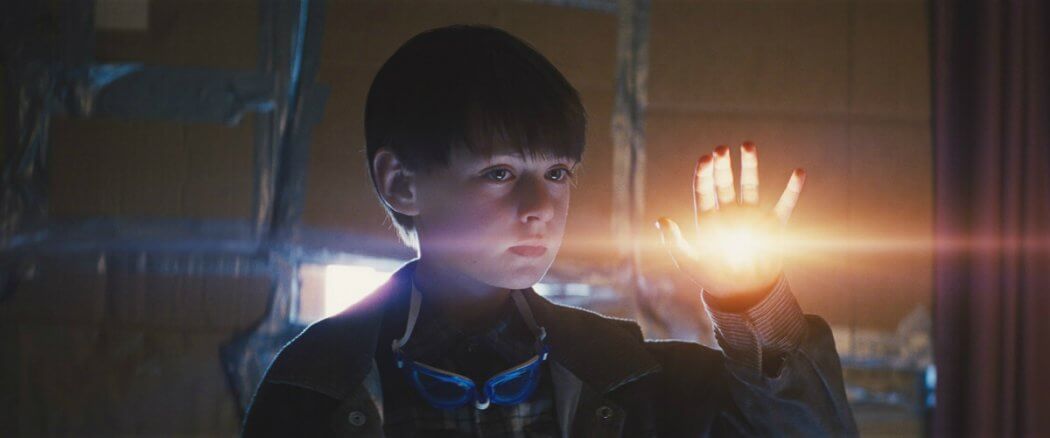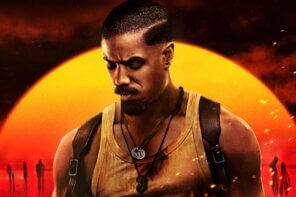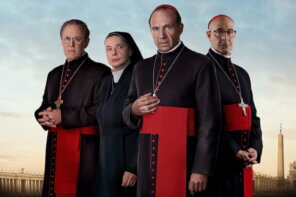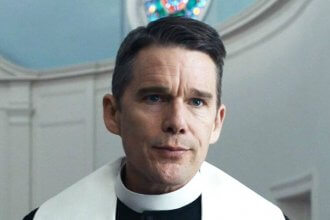Film has always been a director’s medium. I grew up on Steven Spielberg movies. That name meant something. I could trust it. As I dived deeper into film, other names entered my circle of trust: David Fincher, Darren Aronofsky, and Christopher Nolan to name a few. I’m not interested in a perfect track record. Every director has a dud on the resume. The litmus test is innovation. I’m interested in directors who push the boundaries of film, offering experiences that are fresh and groundbreaking.
One of the more recent additions to my must-watch-list is writer/director Jeff Nichols. Nichols has made a total of four feature films. Thankfully, he got his dud out of the way early. His 2007 debut Shotgun Stories is a forgettable, floundering film. But Nichols came back with a vengeance in 2011 with the apocalyptic thriller Take Shelter, and a year later with the riveting coming-of-age story Mud.
Now Nichols has returned with Midnight Special. On the surface it’s a departure from his other work – a foray into mystical science-fiction. But a deeper look reveals themes that are present in all of Nichols’ films: Southern values, mystery, and uncompromising faith.
On the Run
The most prominent connector across Nichols’ filmography is the great Michael Shannon. Shannon was the only thing watchable in Nichols’ debut and the two have worked together ever since. This time Shannon plays Roy, who we first meet on the lam after kidnapping an eight-year-old boy. The boy is Alton, the true subject of the film. Alton possesses abilities of an otherworldly nature, abilities that have caused some to view him as divine. That cult, nicknamed “The Ranch,” is what Roy is fleeing from, along with the authorities. Who is Alton? Where are they going? What will happen when they get there?
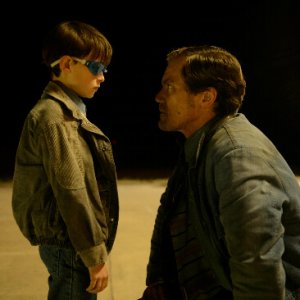 Midnight Special is a film shrouded in mystery. The title could be referencing many things. There’s the song, of course, which plays over the end credits. But for me, the title conjures the feeling of an old movie playing on late-night TV. There’s something distinctly old-fashioned about this film as it twists and turns, taking its time, dwelling on the journey more than the destination.
Midnight Special is a film shrouded in mystery. The title could be referencing many things. There’s the song, of course, which plays over the end credits. But for me, the title conjures the feeling of an old movie playing on late-night TV. There’s something distinctly old-fashioned about this film as it twists and turns, taking its time, dwelling on the journey more than the destination.
The destination is important, though, and it’s partly where Midnight Special falters. For films that are all about build-up, the reveal is often a let-down. I wasn’t crazy about the ending for the same reason I disliked the ending to 10 Cloverfield Lane. Both films subvert their respective genres only to fall victim to them in the end.
Furthermore, the mystery element keeps the characters at arms-length, hampering one of Nichols’ strong suits. In both Take Shelter and Mud, Nichols displays an uncanny ability to connect us deeply to his characters before the story kicks in. In Midnight Special, we start in the middle of the story and spend the rest of the film catching up. This delays our affection for the characters even as the tension builds, begging us to care.
Still, there’s a lot to admire here. Nichols always gets exceptional performances from his actors and Midnight Special is no exception. Shannon is terrific as always, but the supporting turns shine even brighter. There’s Sam Sheppard with his trademark gravitas, a subdued (in a good way) Kirsten Dunst, and Adam Driver (who I’ll officially watch in anything).
But this is a film about Alton, and Jaeden Lieberher doesn’t disappoint. Alton’s eyes swim with the infinite. He’s 8 years old going on 50. Lieberher’s haunting stoicism is the linchpin of the film.
Faith and Common Sense
A theme that shows up frequently in Nichols’ work is faith. In Take Shelter, Curtis believes a storm is coming and renovates his tornado shelter. Everyone in his life thinks he’s crazy. Even he starts to think he’s crazy. But he presses on anyway, trusting the prophetic voice speaking to him in dreams. In Mud, the entire town is convinced that Mud is a dangerous criminal. Yet Ellis trusts his instincts and helps Mud, convinced there’s more to the man than meets the eye.
Midnight Special is Nichols’ most explicit meditation on faith yet. Alton’s powers inspire an actual religion. The Ranch consists of hundreds of devotees, hanging on Alton’s words like Scripture. Even more convincing are the uninitiated. What can cause a State Trooper to turn his back on the law? What can cause a government official to turn his back on his country? Alton gives ordinary people extraordinary faith.
 Many people think faith is believing in something you can’t see. Sometimes that’s true, but I prefer Susan’s definition in Miracle on 34th Street. She says, “Faith is believing in something when common sense tells you not to.” Faith and evidence aren’t mutually exclusive. All of the people who believe in Alton do so because they’ve seen his power firsthand. Nevertheless they still need faith because his abilities run contrary to the way things normally work. Faith also requires action. Even the demons believe in God, Scripture tells us. Genuine faith moves beyond mental assertions to a covenantal commitment.
Many people think faith is believing in something you can’t see. Sometimes that’s true, but I prefer Susan’s definition in Miracle on 34th Street. She says, “Faith is believing in something when common sense tells you not to.” Faith and evidence aren’t mutually exclusive. All of the people who believe in Alton do so because they’ve seen his power firsthand. Nevertheless they still need faith because his abilities run contrary to the way things normally work. Faith also requires action. Even the demons believe in God, Scripture tells us. Genuine faith moves beyond mental assertions to a covenantal commitment.
We see this repeatedly in the Gospels. The crowds saw Jesus perform incredible miracles, yet many turned away. The disciples saw Jesus die and then appear before them in a resurrected body, but Matthew 28:17 says, “And when they saw him they worshiped him, but some doubted.” The evidence can be right before our eyes and we can still refuse to believe.
The evidence for Christianity is overwhelming. Creation points to intelligent design at every turn. The Gospels are eyewitness accounts that meet the most rigid standards of literary authenticity. Experience proves that living for God and others brings greater joy than selfish pursuits. And yet, countless souls reject Christ. Why? Because believing in an invisible God defies our common sense. The evidence is there, but faith is rare.
At the end of Midnight Special, a revelatory event takes place that calls into question our very existence. Many observe the incident, but two reactions remain. Some are changed forever; others move on unphased. In the words of Tilda Swinton, “Faith is in the eye of the beholder.”
The Faithful Four
All of Nichols’ films are set in the South, a place where people say “The Lord” and mean it. Faith is a natural topic to explore there, and Nichols has attacked the subject from four different angles. That’s the exciting thing about Nichols: similarities abound across his work, but each film feels completely different.
Take Shelter is still Nichols’ most accomplished work to date, but there are layers in Midnight Special we haven’t seen before. I love catching artists early in their career and watching them evolve over time. This is truly a director worth following, with his best work still to come. I can’t wait to watch his masterpiece.

